Pieces of a Woman: Kornél Mundruczó and Kata Wéber on grief, survival and building bridges
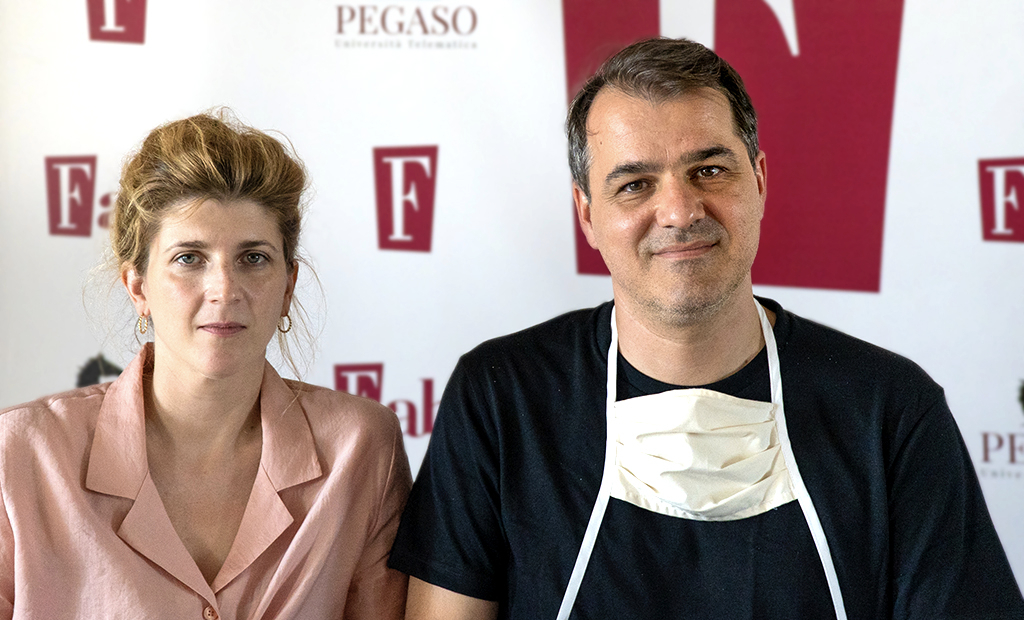
Martha (Vanessa Kirby) and Sean (Shia LaBeouf) are a young couple facing an odyssey of mourning together with Martha’s mother (Ellen Burstyn) and the midwife assisting Martha’s labour and delivery. Director Kornél Mundruczó (White God, Jupiter’s Moon) and partner/screenwriter Kata Wéber craft a deeply personal meditation and ultimately transcendent story of a woman learning to live alongside her loss. We spoke with them about Pieces of a Woman which ended up winning the Coppa Volpi for Best Actress thanks to Kirby’s performance.
Did the story start with you?
Kata Wéber: I think I had some notes in my notebook that was about mostly the dialogue between the mother and the daughter in the dinner scene. So, I think that was the starting point of writing but before that, I think we talked to Kormél a lot about which issues we were interested in and where we were going to go and I think that maybe that was something you could say was the beginning
The film is also about the survival of the couple after such a dramatic event. Can you survive it together as a couple?
Kornél Mundruczó: The testimonies are not absolutely different on that. There are a certain amount of couples that just went through it and stayed together but the majorities fall apart that was our experience and it’s an amazing taboo that what we are facing also we have an experience of an unborn child and it’s definitely not the same as in the movie but at least we are talking about that, in that time it was quite quiet and when I read those notes under the title Pieces of a Woman I really encouraged Kata to talk about it and just really put her feelings on the pages and because I recognise it’s a tough one personally and then she did and also includes a lot of family stories inside and it became her story like a hundred per cent but it’s not illustriously one by one.
Do you think we can get over the taboo of the experience of an unborn child? Because it’s very private.
KW: No, but I think it’s also important to claim that you get the right to grieve as you want, that there is no recipe, there is just not a road that you have to go through. These stages are very personal, very unique from person to person so I think it’s important to say that I think it is and I also think it’s important to try to help these women to not be isolated that much and if you can talk about something it just takes down the walls somehow, at least so it’s just to give voice to this kind of existence and also accept the ones who we lost are also there. Right? So, we don’t have to get over them.
At the press conference, you also said something very interesting about the Jewish roots of the family.
KW: Yeah that was important for creating the isolation. I wanted to put the story in an environment that I know and I found it really interesting that within these families survival is like the ultimate weapon. You have to know it, it’s the knowledge you pass on. But with this tragedy you can’t use the same recipe, right? ‘Cause it just doesn’t help so, of course, it creates a bigger conflict within a family and a bigger isolation for Martha and also a possible way for her to get out from the experience in her own brave way, which is different from the others. So it’s easier to talk about it like this for me at least.
The survival of the Jewish family, a lot of it is about assimilation, about fitting in, about not having a reaction.
KW: Yeah if you want to fit in you never want to stand out, you want to be perfect.
KM: No failures.
KW: No failures accepted because you have to stay strong and it sometimes can be very very devastating from the inside.
That’s what they took from the holocaust?
KW: I think so yes. Of course, there are very personal ways how to come out, but sometimes I know some families like that and I also have my own family experience so it’s like there is a tendency.
KM: And it’s Eastern European.
KW: Oh yeah, yeah.
KM: So it’s different if you emigrated before the war to America.
How different is the experience of those in Eastern Europe compared with Central Europe?
KM: In Eastern Europe, including Hungary, it was really heavy. All of Eastern Europe was murdered by the Nazis and of course it’s a big in Brussels and France as well but we don’t have experience about that. We have more experience with Eastern Europeans and then you stay and have to deal with the communism later and you have to deal with it.
You have to survive again.
KM: Exactly and the mother in our story emigrated just in the 50s you know? And Martha was born an American but it’s really close to there, the history call, the past.
Could you walk me through the emotional roller coaster of the long take of Martha’s labour. It was so powerful that, at some point, I was struggling to look at the screen. How did you build that and what did you want me to take away?
KM: The major thing was that we had to be as close to Martha as we could. So how can I share her experience in the most physical way? You have to feel what she’s feeling. And also then I was dad to three children and it’s an emotional roller coaster even if it’s just beautiful and goes in the absolute right way, there’s still so much uncertainty because you cannot control it. And this is the beauty and harrowing in the same time that you don’t have the control on birth and on death. And that’s so common, so universal, so much us and so much about humanity. And just to do a scene where we can give the whole experience in one. We are in the film festival and everybody knows this is the tragic end. But when you watch it, even if you don’t know anything about the movie, you are not sure you are watching a tragic end. It can be a happy end. You know, the thing is happening and it’s just like the last moment that it turned like that. And the decision to make it as a long take. How can we compress like 8, 10, 12-hour time into a movie? We had the long take idea. When you expanded the film time it’s helpful because when it’s 21, 22 minutes, one shot it feels forever, it feels like endless time. That’s what we try to create and give the actors as much freedom as we can and use a technique with a fluid camera so that follow them. We had 30 or 32 different stages within that scene: this, this, this, the Sigur Rós moment, that’s the moment of love. And so many others.
You take us so close to them with the camera… how many takes did you do?
KM: What is cut into the movie was the fourth take and I think we did six all together. But the fourth was the end of the first day, so basically, we shot that on the first day.
Were you there as well during the shooting of the film?
KW: Yeah.
Why did this have to be an American film?
KM: I had one experience when a project just fell apart. At that time it was quite understandable but also quite painful and, but it opened up time to concentrate also and make a decision on what you really want to do. I felt that I just want to do something small and personal, I just don’t want to be one screw in the system and I find that I have to do what I can do and I have to “sing my song”, let’s say that. When we shared the script we had very nice reactions on that and then the ball was rolling, generating the cast and so on. It was a very quick project though, I met Vanessa last July, late July, and now we are here. We shot December-January so it was like, bam.
And why did you want it to be an American film? Because you could have made it in Hungary as well.
KM: Yeah it is as you can do and actually, we applied first in Hungary, at the film foundation and they just don’t want to do this story and they just got rid of it.
What? They don’t want to do it?
KM: They don’t want to do it. I mean I was kicked out with this project. When I started to work on English language project and I started to look around I was 42, after seven Hungarian-speaking movies – and I kind of did everything that you can do with an Hungarian movie, like the greatest success and the failures – I have all of the experience and you know what is the minimum and what is the maximum you can get, and again I was 42 and I find it like: I need to change something. I just want to entertain myself as well and put myself in a different circumstance. An English language, it feels global and it means for the audience is just like you have straight and major limitations with your language – in Hungarian – and if you do, so it’s more for the film world and more for cinephiles, for the art-house distribution system. I knew them, I’m part of it, but it’s not like I would like to betray them, I definitely want to do more again Hungarian movies. I’m living in Berlin actually, between and Berlin actually. I feel like Europe is my home and I don’t have to move to Los Angeles and live there.
I suppose the bridge being built is an objective reference point in the story. Was it already part of the plan or did you find it during the production?
KM: It was written and it was like your idea to get Seann as a bridge engineer
KW: yeah for me it’s just like such a metaphor, building a bridge. The parallel universe is right and then there is the bridge where they can meet. And them being completely different in their grief process. And also Sean being a little bit of a misfit of the family. And also as a child I had this picture up on the wall which was this bridge being built and I always watched it while playing the piano and therefore I think I had this imagination that I want to put it in a script once because it’s just everything.
KM: But also, yeah from Budapest so there is the Danube and so many bridges.
KW: Yeah!
There’s one thing I didn’t get, when Martha comes back from the party and there’s this jazz music playing. To me, that didn’t work with the rest of the vibe. Was that intentional to shake things up?
KM: I have used Bill Evans twice in the movie, once is in the bookstore and once when she walks out of the bar. His music was for me represents this crazy loneliness, Bill Evans also has this kind of almost painful but beautiful loneliness. And I felt that it was close to Martha’s heart and that’s why I’m using his music. The scene is just like, you know, Sean crossing the border with Susanne and Martha doesn’t cross the border with Max, who’s the name of the coworker in the company. So just that you have your decision and he’s betrayed her and she’s not betrayed him, even if the relationship is kind of feel it’s over.
Did Shia bring something to the character that wasn’t in the script?
KW: A lot of things but it also kind of from the fact that English is our second language, so of course anyway we would work really collaboratively on the text, right?
KM: We always do, even in my Hungarian movies.
KW: We always do, and because English isn’t a certain language, so for example Shia is from Los Angeles, and Ellen is from New York, and also the generations are different so they would completely have different suggestions on the same thing. And also Vanessa being English. They all talk English but in a very different way so it’s not just with Shia, it’s like you always have to adapt to the people you work with.
KM: Yes, but also, he dedicated himself so much to Sean. It’s unbelievable how close he wants go with a character, and after a certain point you cannot really decide if it’s Sean or its Shia?
Is that method acting?
KM: Yes it’s method acting. Deeply. I think he knows a lot about the character and he’s a real artist who is composing the character himself and I appreciate a real artist on the set.
Because it was funny at the press conference, Ellen Burstyn said Shia can be a hard guy to work with and that made it easier for her to play the character?
KM: Yeah, yeah, yeah absolutely it’s kind of method.
KW: It’s part of it.
KM: It’s part of it but also, in a shooting day you have to create real material, alive material. If everybody’s a bit lazy and everybody’s just doing the right stuff it’s just easy to become dead material. So, what I really appreciate in Shia is his passion to create something alive.
Can I also say that maybe you feel your theatre background in what you say now, and also in the movie as well, and in Hollywood they often look for European directors and maybe you been working in theatre and Hungarian films as well – do we have maybe a European ecosystem that Hollywood can use and that we maybe don’t care that much for? Perhaps European theatre is more difficult for us to appreciate?
KW: Ah I get what you mean, that they appreciate us.
KM: My feeling is that they really look at Europe. that’s my feeling.
KW: That they are watching. It’s a big appreciation of course that they think you can do something that can be meaningful on that land too so it’s a big change and it’s a huge bridge, not even a real one.
Do we appreciate it enough? We Europeans, do we care enough for our theatre, our directors?
KW: I mean, theatre is very different, theatre is not that strong in the States.
KM: At all!
KW: I mean Europe is a theatre culture it’s like and therefore, of course you don’t care about it because in every corner there is a good theatre and good actors. So, it’s a very different thing but at the same time you cannot compare the elite of theatre, European theatre, to anything. It’s such a wonderful thing that it’s still not giving in for anything, right?
But it’s under pressure, no?
KW: It is under pressure.
KM: I’ve just done two operas in Antwerp.
KW: But it’s still not global. You know, you can’t stream it, it’s very limited.
KM: Very local, so elite.
KW: So elite.
But elite’s not a good word, is it?
KW: In a good sense, I mean.
KM: It’s more like high quality, really high quality thinking, a forum to come together, to think together. I like more and more theatre. I feel myself as a film marker, obviously, but I like the level of theatre, how we think.
How did Martin Scorsese get involved?
KM: He saw the first rough cut which was a two-hour-and-40 version or something. He just called me and said: how can I help? I love the movie, I love how complex it is, I love how nuanced. I think he was moved by the story and then the team, me myself and the producers, decided to ask him the biggest favour: can you be part of the team? And he said yes. That’s how he became part of the movie and it’s very meaningful. Back to bridges, for me it’s kind of a bridge in-between generations, he is like an iconic figure of American auteur cinema and for me auteur cinema is as important as it is for him, and he just wanted to support it
Venice is known for being a platform for Oscar movies. I would love for this film to be nominated for an Oscar. Do you think about it?
KM: No!
KM: Not at all.
KW: We shouldn’t [laughs]. There’s just no way you can think about awards or festivals. You just never know, why would you think about it?
Filippo L’Astorina, the Editor
Photo: Filippo L’Astorina

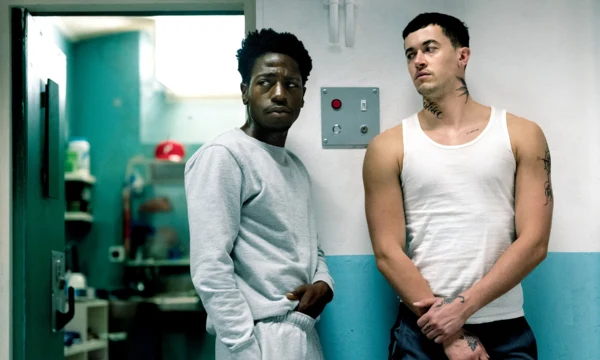
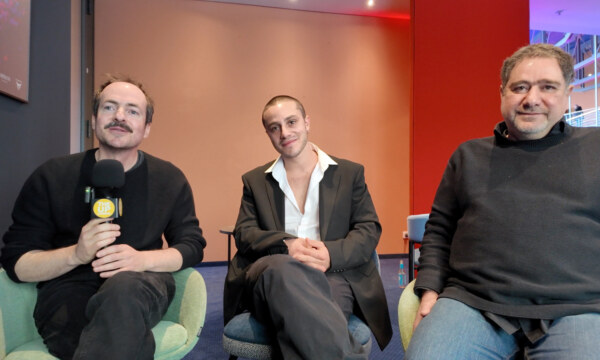
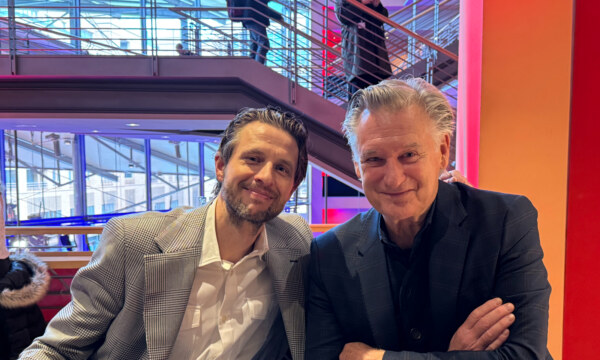
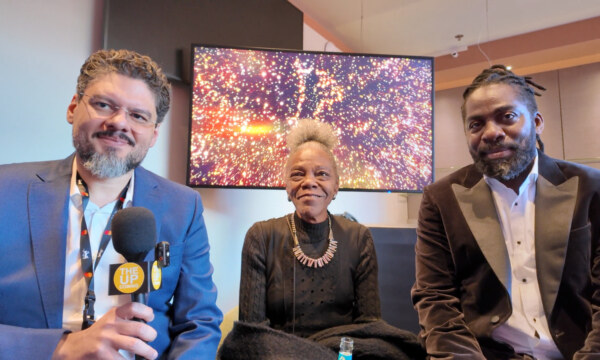
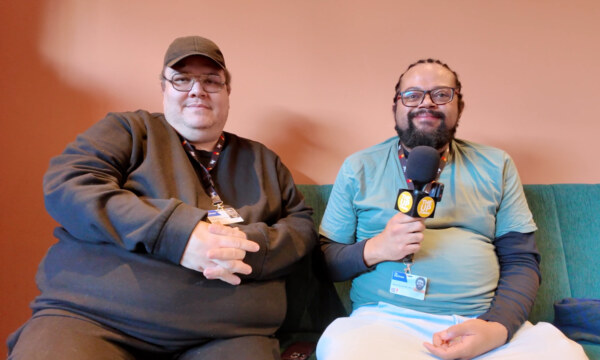
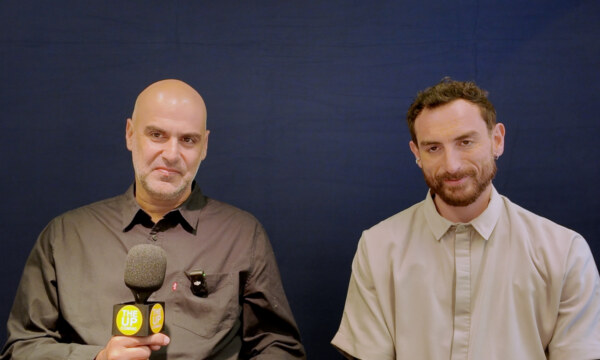
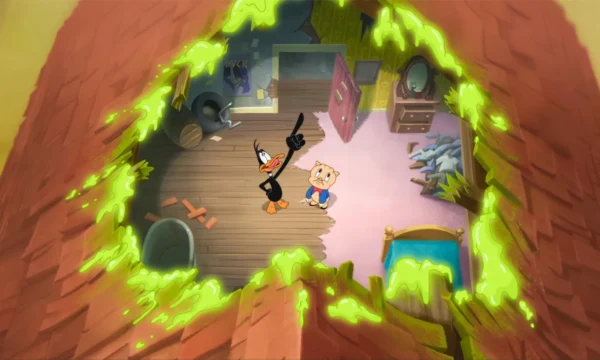
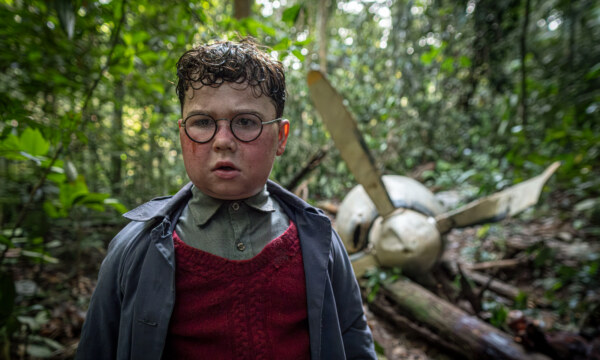
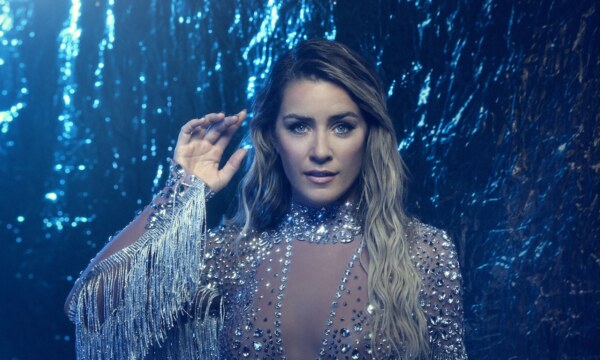


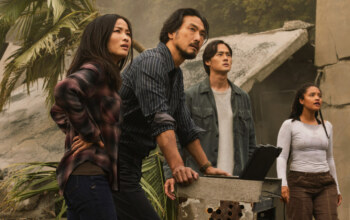
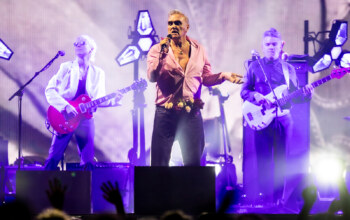
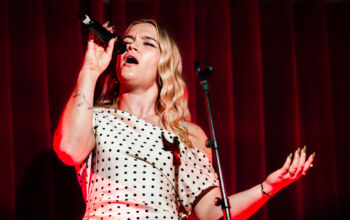
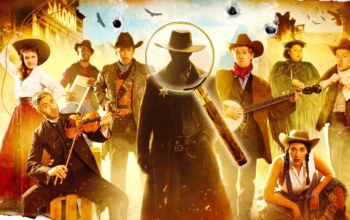
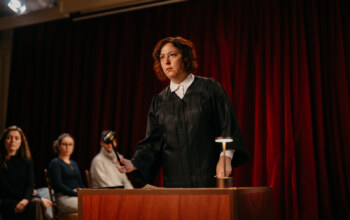




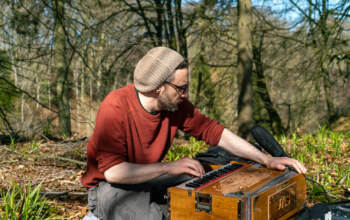
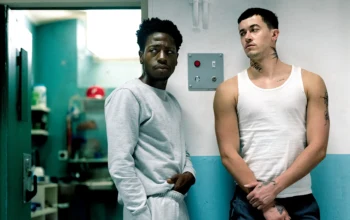
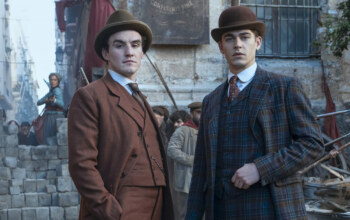
Facebook
Twitter
Instagram
YouTube
RSS